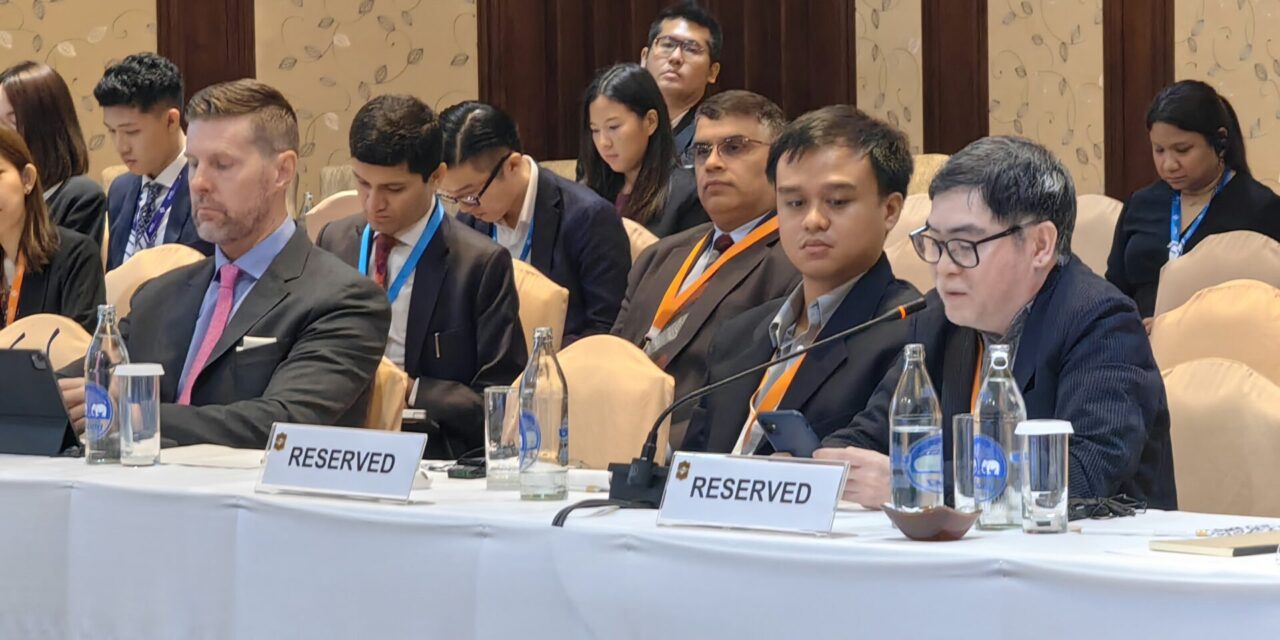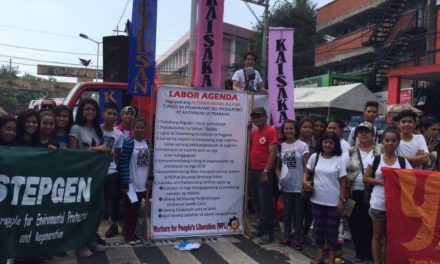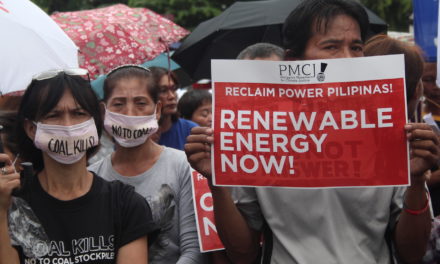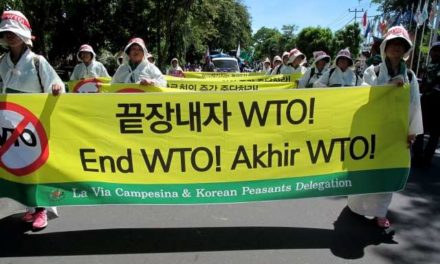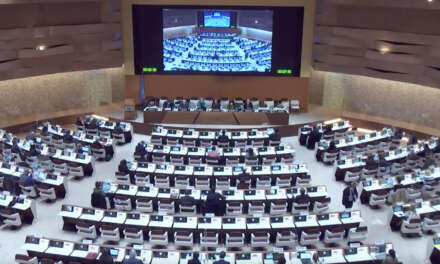Thank you for this opportunity to speak at this stakeholder listening session.
The clean energy transition is a key concern discussed in the IPEF negotiations cutting across all four pillars, from trade in environmental goods and services in pillar 1, to addressing supply chain bottlenecks for critical energy transition minerals in pillar 2, to cooperation on supporting energy transition and climate solutions in pillar 3, and possibly on issues of taxation in pillar 4.
While we laud the commitment to reflect high environmental standards in IPEF, what limited information we know about the negotiations so far raises more questions and concerns rather than hope that these agreements could translate to strong and enforceable commitments from all parties, with respect to environmental standards that place the interests of people’s, communities and our planet at the center, and not the advancement of false solutions like carbon capture and storage. .
A particular area of concern is whether and how environmental and human rights obligations are being reflected in discussions on critical minerals. The impetus to ramp up production of electric vehicles, for example to meet growing current and projected demand, is driving a mad rush to expand mining in critical minerals such as lithium, copper and nickel, which are essential inputs to the production of batteries that power these vehicles.
In the effort to secure these critical minerals, rules are being written, it seems using a corporate pen, in the name of building resilience, securing and diversifying sources, addressing supply chain bottlenecks.
These rules we fear however, notwithstanding the good intentions to implement labor and environmental standards, ignore the potential impact on economic, social and cultural rights of communities, particularly indigenous communities, in whose ancestral domains and territories these resources are being extracted.
The notion of shared prosperity that IPEF is promoting seems to be anchored on a different application of the principle of common but differentiated responsibility.
On addressing supply chain vulnerabilities for example, the idea that is being promoted is that all parties have a common interest in building supply chain resilience and addressing bottlenecks, yet the countries most vulnerable to supply disruptions, and therefore most to gain from efforts to address these, like the United States are not carrying the greater burden that they are suppose to bear. Instead countries like the Philippines and Indonesia, where most of these resources will be mined are being asked to carry the cudgels and commit to align their policies in support of supposed shared goals. Furthermore, the greatest burden will in fact be carried by indigenous communities in these resource rich countries. The same indigenous communities that are at the center of addressing climate and ecological justice issues.
A new study published in the Nature Sustainability Journal finds that more than half of the world’s resource base for crucial energy transition materials is located on or near land where Indigenous people live. For example the analysis finds that 85% of the current and planned lithium extraction projects are located on or near land managed or inhabited by Indigenous people.
The report raises the concern that “the extraction of more ETMs to advance the energy transition will extend the global mining land footprint presenting significant threats to social and environmental sustainability.”
We also echo the concern raised in the report that “considerations about the local effects of resource extraction are superseded by concerns related to climate change. We extend that further in the case of IPEF, that the drive to address resource security may supersede any consideration of the possible threats to indigenous communities. And therefore unless these considerations and local concerns are recognized, the proposed solutions to climate or supply chain issues will not be addressed but will instead exacerbate these problems
One major concern is on the effect of intensified resource extraction on human rights. A report from Global Witness released last year found that 200 land and environmental defenders were killed in 2021 – nearly four people a week, with the disproportionate number of attacks against Indigenous peoples, with over 40% of all fatal attacks targeting Indigenous people, despite them only making up 5% of the world’s population. The report also found that Mining was the sector linked to the most killings with 27 cases.
The Business and Human Rights Resource Center have tracked 500 human rights allegations linked to transition minerals from 2010-2021. These allegations ranged from threats and intimidation, beatings and violence, arrests and arbitrary detentions, forced relocation and sexual violence or exploitation. BHRRC also counted a total of 27 killings linked to energy transition minerals over the same ten year period.
While there are token references to environmental and labor protection being reflected in IPEF and in bilateral critical mineral agreements there are no references in these negotiations to human rights nor adherence to a human rights based approach to addressing supply chain constraints.. Commitments are often couched in language such as ‘confirms its intention’ or ‘shall endeavor ‘ which raises doubts about enforceability of these commitments.
So called best practices in assessment of investments for example should include respect for free prior informed consent or FPIC for indigenous communities, and genuine consultations and securing consent from affected communities.
Building economic resilience should consider risks and threats not just to supply chains and access and control over resources, but those risks and threats to communities where these resources are being extracted.
Finally, nothing in IPEF should undermine the obligations of States to protect and work towards progressive realization of civil, political and economic social and cultural rights, particularly of indigenous peoples and communities.
The primacy of human rights should be recognized as the heart of this framework for shared prosperity in the Indo Pacific region, and all parties to these negotiations should demonstrate their commitment to push for stronger corporate accountability mechanisms including supporting the process for legally binding instruments at the UN to regulate transnational corporations. This way, it is clear that the agenda to advance shared prosperity through IPEF based on addressing people’s needs and not the simple pursuit of corporate profits.
*this intervention was delivered at the IPEF Fifth Negotiating Round: Bangkok In-Person Stakeholder Listening Session, which was held on Thursday, 14 September 2023 at the Shangri-La Hotel, Bangkok.

